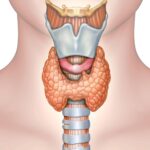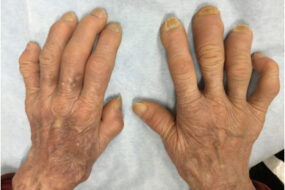- Home
- INTERNAL MEDICINE
- Bacterial Meningitis

Bacterial meningitis is usually part of a bacteremic illness, although direct spread from adjacent sites can occur. It can be community or healthcare-associated. Healthcare-associated bacterial meningitis occurs more commonly after neurosurgical procedures.
Microbiology;
- Neonates– E.coli, group B streptococci, Proteus, Listeria monocytogenes
- Pre-school children– Hemophilus influenzae, Neisseria meningitidis, Streptococcal pneumoniae
- Adults– Neisseria meningitidis, Streptococcal pneumoniae
- Immunosuppression, diabetes, alcoholics, pregnant women- Listeria monocytogenes
* Neisseria meningitidis is common between 11 and 17 years, while Streptococcus pneumoniae is the most common in adults
*Epidemics of meningococcal meningitis occur especially in poor living conditions or in a hot and dry climate. The bacterium invades through the nasopharynx and produces sepsis leading to meningitis.
Pathophysiology;
The infection triggers an immune response, and inflammatory cells invade the pia-arachnoid membrane. Pus forms, which later organize into adhesions that obstruct CSF flow or damage cranial nerves at the base of the brain. CSF pressure rises, and the protein content increases. Endarteritis of the leptomeningeal arteries may produce secondary brain infarction. Pneumococcal meningitis is associated with a very purulent CSF
Clinical presentation
- Classic triad- fever, nuchal rigidity, and headache
- Severe headache in the majority of patients
- Photophobia, seizures, and cranial nerve palsies may be present
- In severe disease, the patient may be comatose
- 90% of those with meningococcal meningitis will have 2; fever, neck stiffness, altered consciousness, and a rash
- Chronic meningococcemia- the patient is sick for weeks to months with recurrent fever, sweating, transient rash, and joint pains. It occurs in the elderly and those who have undergone a splenectomy.
- Otitis media in Pneumococcal and H influenzae disease
- Pneumococcal meningitis may be associated with pneumonia
Physical examination
- Signs of systemic involvement- fever, tachycardia, hypotension
- Meningeal irritation signs- neck stiffness, Kernig sign, Brudzinski sign
- Examine for papilledema and the ear for otitis media
- Examine the skin for the meningococcal rash
Investigations
1. Lumbar puncture- mandatory unless there are contraindications;
- Drowsiness
- Immunosuppression
- Focal neurologic signs or seizures
- Recent neurosurgery
- Presence of head injury
*CSF analysis- turbid CSF due to neutrophilia, elevated protein, low glucose,
*Gram stain and culture of the CSF
2. Blood culture
3. PCR of blood and CSF to identify the organism
4. CBC- neutrophilia
5. Coagulation profile- rule out disseminated intravascular coagulation
6. Serum chemistry- to assess the severity
7. Rapid tests
Management
Supportive-
- Secure the airway, especially in GCS<8
- Hemodynamic stabilisation
- Identify and correct coagulopathy
- Manage raised intracranial pressure
Medical management;
-Empiric treatment should be started with IV benzylpenicillin immediately
1.If no rash- ceftriaxone or cefotaxime- high dose
If resistance is suspected- add vancomycin or rifampicin
If listeria monocytogenes is suspected- as for number one above and add ampicillin or cotrimoxazole
- Anaphylaxis to penicillins- chloramphenicol plus vancomycin
- Adjunctive glucocorticoids to reduce hearing loss and neurologic sequelae in both children and adults
- In meningococcal meningitis with sepsis, intensive care unit facilities may be required
Adverse prognostic features in meningococcal meningitis;.
- Rapidly developing rash
- Hypotensive shock
- Hemorrhagic diathesis
- Multi-organ failure
- Age > 60
Chemotherapy when the causative agent is known;
- Neisseria meningitidis- Benzylpenicillin
- Streptococcus pneumoniae( sensitive to beta lactams) – cefotaxime or ceftriaxone( same for H. influenzae)
- S.pneumoniae resistant to beta-lactams- as for sensitive strains, plus vancomycin or rifampicin
- Listeria monocytogenes- ampicillin plus gentamicin
- Streptococcus suis- cefotaxime or ceftriaxone
Complications of meningococcal sepsis
- Rash
- Shock
- Meningitis
- Renal failure
- Arthritis
- Peripheral gangrene
- Pericarditis
Prevention of meningococcal infection
- Close contacts to receive oral rifampicin for two days or stat dose of ciprofloxacin
- Vaccination












